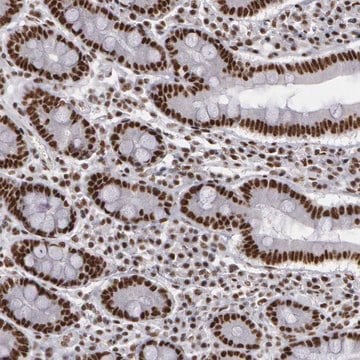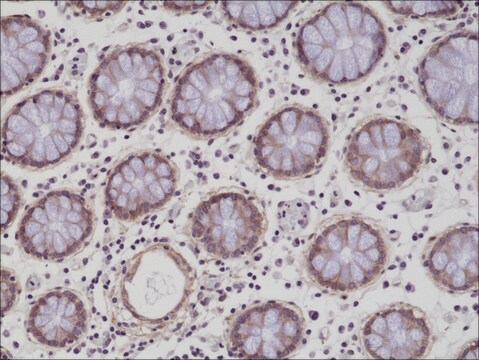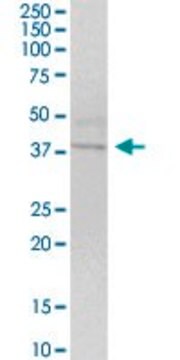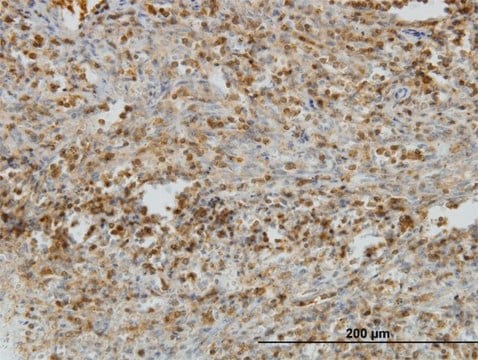M8072
Anti-Mucolipin-1 antibody, Mouse monoclonal
clone MLN128, purified from hybridoma cell culture
Synonym(s):
Anti-MCOLN1, Anti-ML4, Anti-MLIV, Anti-MST080, Anti-MSTP080, Anti-Mucolipidin, Anti-TRP-ML1, Anti-TRPM-L1, Anti-TRPML1, Anti-Transient receptor potential cation channel, mucolipin subfamily, member 1
About This Item
Recommended Products
biological source
mouse
conjugate
unconjugated
antibody form
purified from hybridoma cell culture
antibody product type
primary antibodies
clone
MLN128, monoclonal
form
buffered aqueous solution
mol wt
antigen ~110 kDa (additional bands may be observed)
species reactivity
human
packaging
antibody small pack of 25 μL
concentration
~2.0 mg/mL
technique(s)
immunocytochemistry: suitable
indirect ELISA: suitable
western blot: 4-8 μg/mL using membrane fraction of HEK-293T expressing human mucolipin-1
UniProt accession no.
shipped in
dry ice
storage temp.
−20°C
target post-translational modification
unmodified
Gene Information
human ... MCOLN1(57192)
General description
Application
- enzyme linked immunosorbent assay (ELISA)
- immunoblotting
- immunocytochemistry.
Biochem/physiol Actions
Physical form
Disclaimer
Not finding the right product?
Try our Product Selector Tool.
related product
Storage Class Code
10 - Combustible liquids
WGK
WGK 1
Flash Point(F)
Not applicable
Flash Point(C)
Not applicable
Personal Protective Equipment
Certificates of Analysis (COA)
Search for Certificates of Analysis (COA) by entering the products Lot/Batch Number. Lot and Batch Numbers can be found on a product’s label following the words ‘Lot’ or ‘Batch’.
Already Own This Product?
Find documentation for the products that you have recently purchased in the Document Library.
Our team of scientists has experience in all areas of research including Life Science, Material Science, Chemical Synthesis, Chromatography, Analytical and many others.
Contact Technical Service








